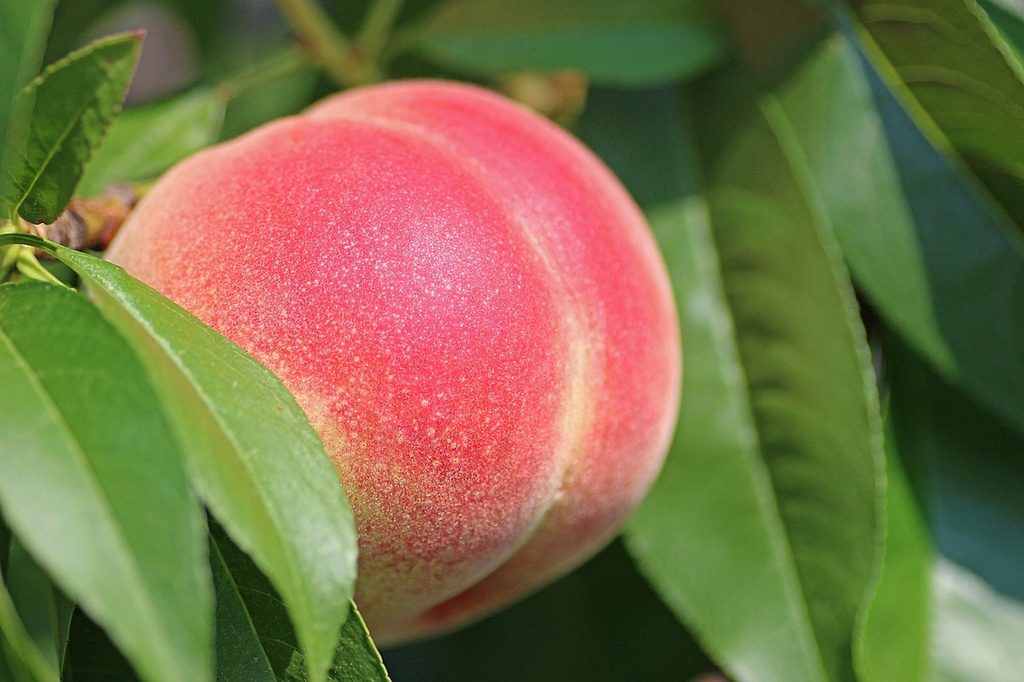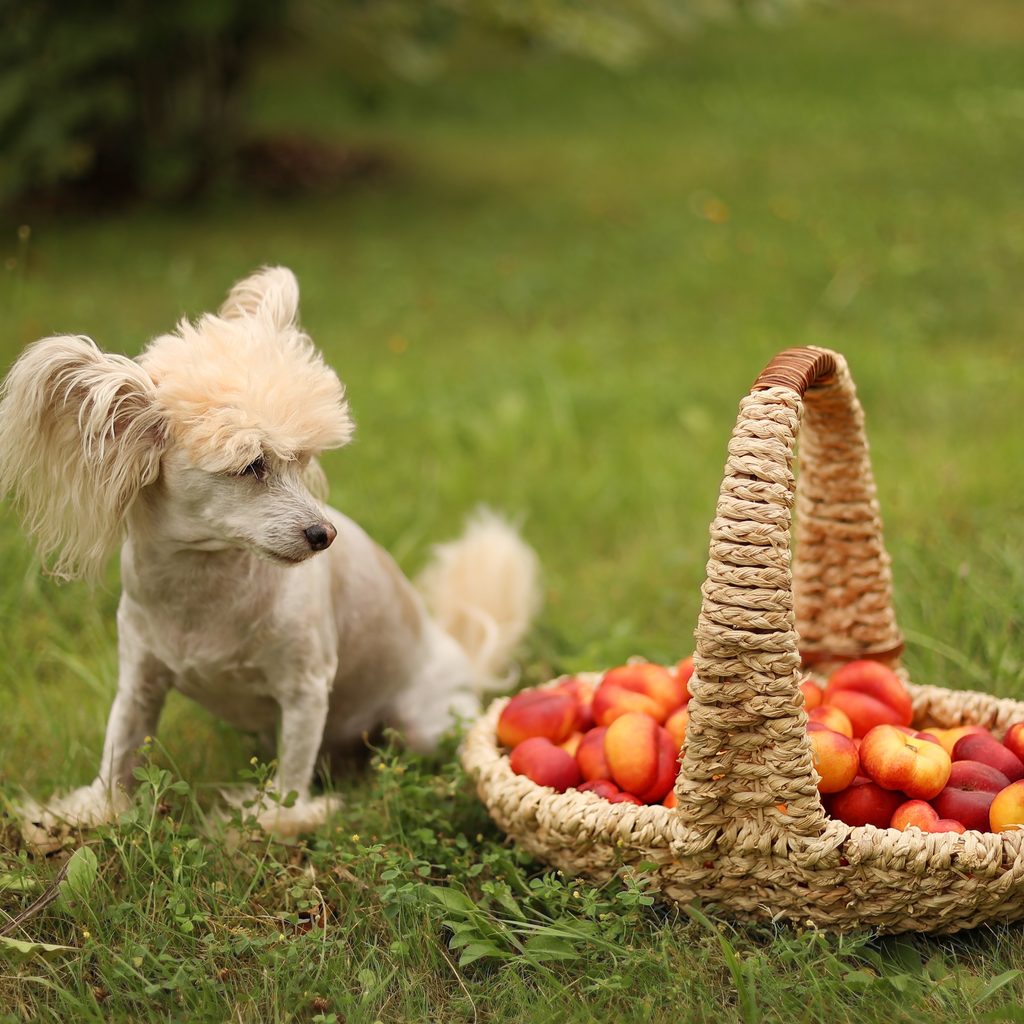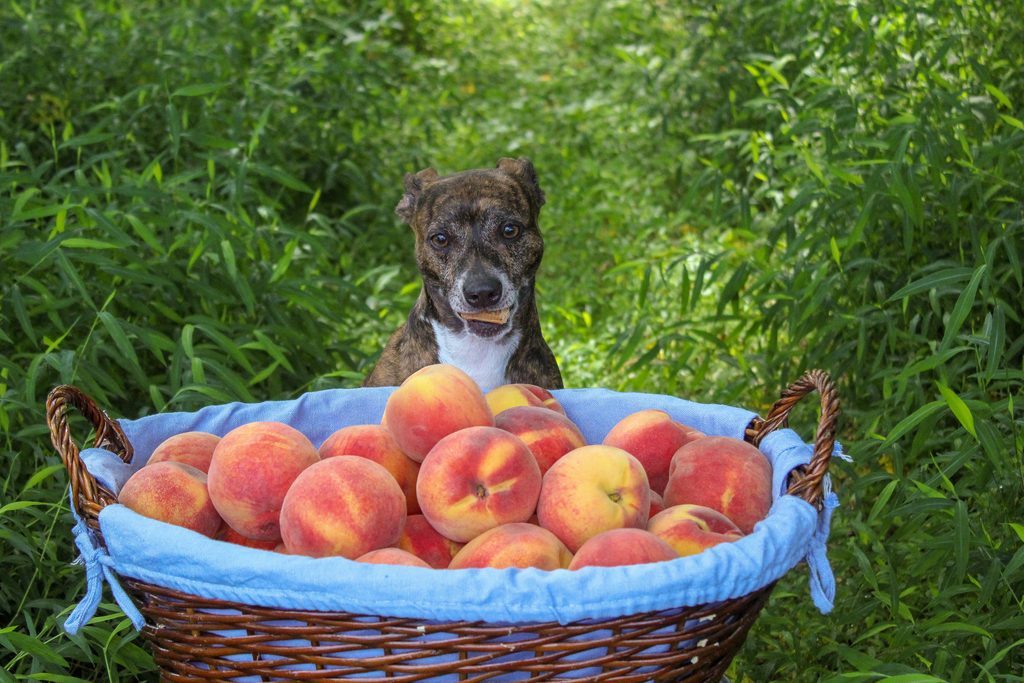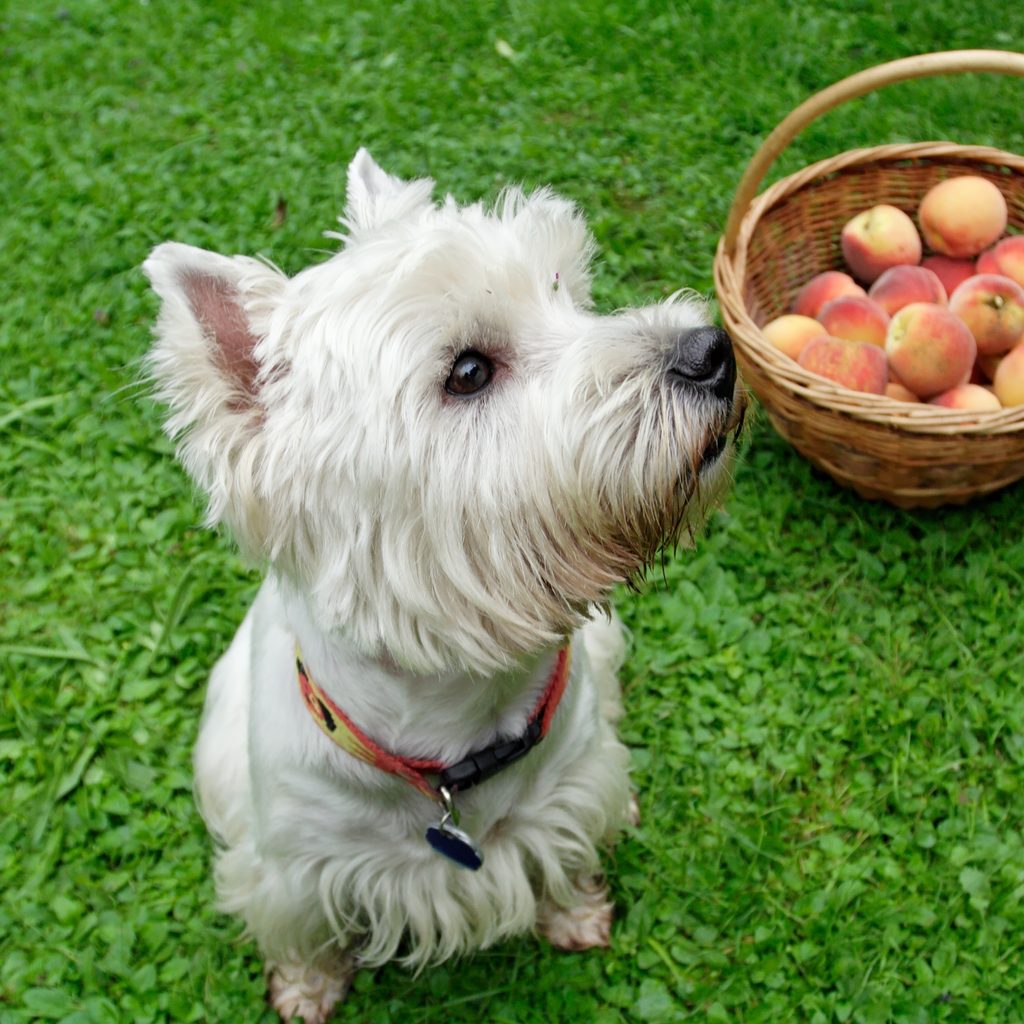
Summertime may be hot, but there are plenty of ways to stay cool and refreshed, even when the sun is at its peak. You can go for a swim, crank up the air conditioner, or enjoy an energizing snack. Fresh fruit tends to be popular this time of year, and it’s only natural to want to share a bite of something cool and yummy when your dog starts begging.
But how do you know what’s safe to share with your furry friend? Many fruits are dog-safe, delicious, and even nutritious foods, but where do peaches stand on the list? If you’ve ever asked yourself, “Can dogs eat peaches?” you’re certainly not alone. Fortunately, you won’t need to wait long to find out what fruit you can feed your dog this summer. Here’s what to know about dogs and peaches.
Can dogs eat peaches?

You’ll be happy to know that dogs can eat peaches when prepared correctly. In fact, they’re actually nutritious for your dog! When fed in moderation, peaches are an excellent source of vitamin A, vitamin C, fiber, and antioxidants. However, that doesn’t mean your dog can eat only peaches all summer. Canines need a balanced diet, too. In general, treats, including fresh fruit, should not make up more than 10% of your dog’s daily caloric intake.
Warnings about feeding dogs peaches

Just because peaches are safe doesn’t mean you can feed them to your dog without a care in the world. It’s important to remove the peach pit, leaves, and stem before your dog gets their paws on them. These parts of the fruit contain small amounts of cyanide, which can make your dog extremely sick if ingested. Not to mention the choking hazards they are.
Additionally, there can be too much of a good thing when it comes to your dog’s diet. Even if you keep peaches, fruits, and treats to 10% or less of your dog’s diet, they could be sensitive to the fiber or sugar in peaches. This may not be the best treat for diabetic dogs, but most pups can start small with just one bite.
How to prepare peaches for dogs

If you have a peach tree in your yard, try to make sure that your dog doesn’t eat any of the fruits off the ground. Rotten fruit can make your dog sick, and there’s a much higher chance of them eating a part of the peach they shouldn’t.
The best way to prepare peaches for dogs is to remove the stem and leaves, wash the peach, and slice it up into bite-sized pieces. Make sure to toss the pit in the trash. You can try freezing bites of peach for a cold, refreshing treat, but be sure not to feed your dog canned peaches or those from a fruit cup, as those are packed with sugar.
Now that you’re armed with the knowledge to give your dog a tasty peach-flavored summer, you can give them a yummy snack without worrying about their safety. And if they decide they don’t like peaches, there’s always more for you.




